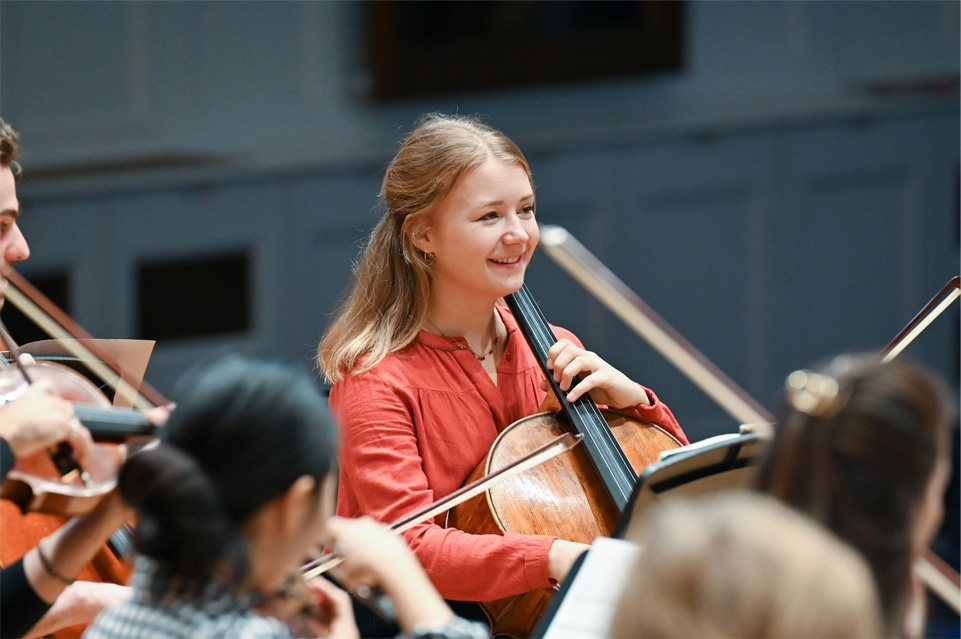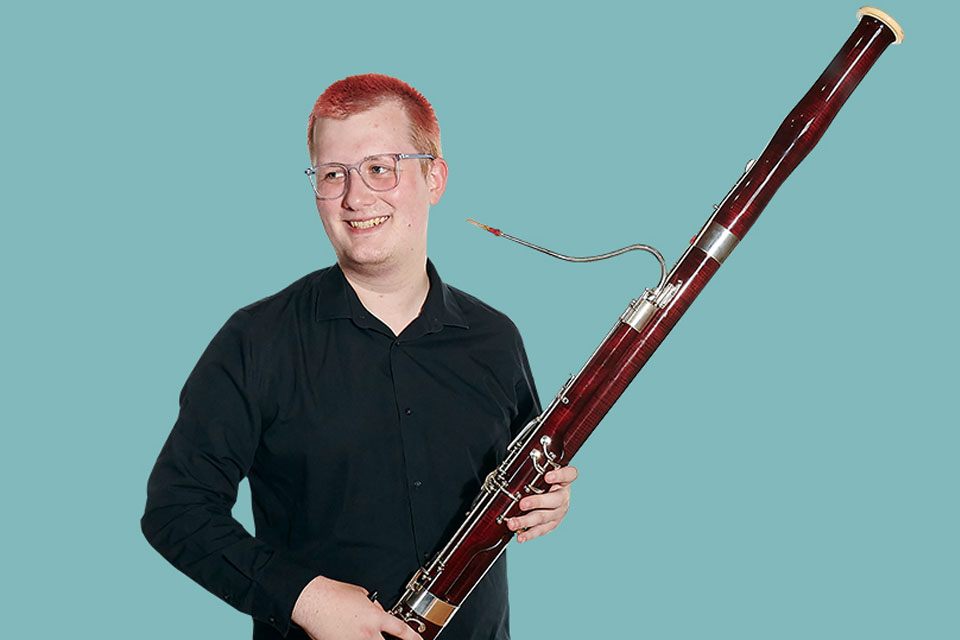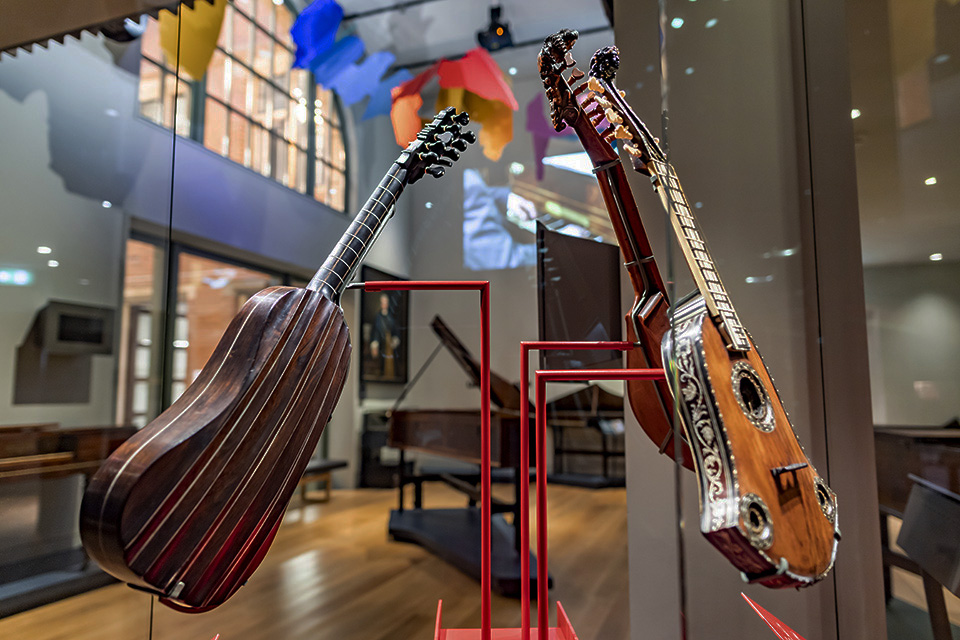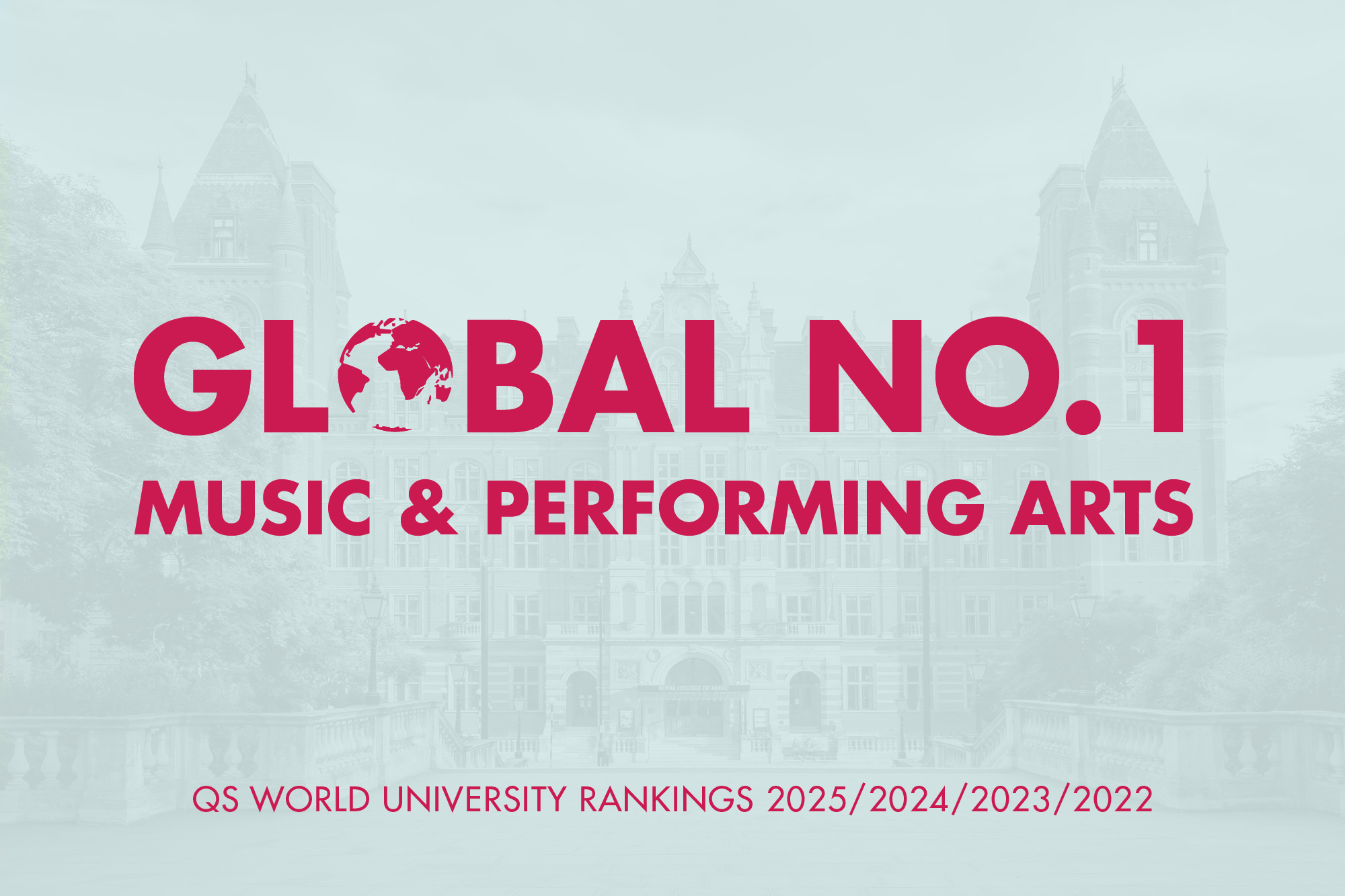Fellowship in Historical Keyboards
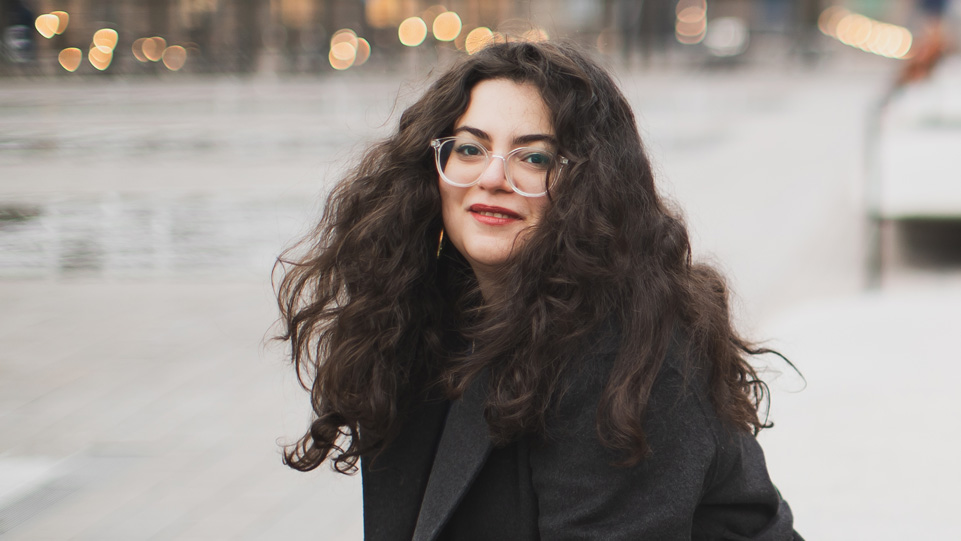
All fellows are expected to develop musical and communication skills by undertaking further intensive study, working with students internally and doing all they can to raise the profile of the RCM externally. They play a full and active part in the musical life of the RCM as well as functioning as RCM ambassadors. They have full use of the RCM Library with its wealth of material and work in close contact with the Creative Careers Centre, the RCM’s centre for professional skills and publicity services.
2026-27 Applications
Fellowship in Historical Keyboards applications for 2026-27 will open on 8 December 2025.
Current Fellow in Historical Keyboards
İlayda Deniz Oğuz
İlayda Deniz Oğuz (b. 2000) is a Turkish pianist, fortepianist, and composer. She made her concerto debut in 2014 with the Bilkent Symphony Orchestra and has since performed with the Presidential Symphony Orchestra (2017) and the Agora Youth Symphony Orchestra (2020). She has attended masterclasses with Robert Levin, Boris Giltburg, Sofya Gulyak, Dina Yoffe, and Stanislav Ioudenitch.
With a repertoire spanning from the 16th to the 21st century, Oğuz is recognized for her versatility. She has collaborated with distinguished historical keyboard performers, including Robert Levin, Geoffrey Govier, Terence Charlston, Jane Chapman, Robert Woolley, Steven Devine, Catalina Vicens, Marcel Pérès, Bart van Oort, Carole Cerasi, Riccardo Cecchetti, and Thomas Allery. She regularly works alongside contemporary composers in performance and creation. In 2019, she performed with the renowned contemporary ensemble Cikada under Christian Eggen. She is a member of the Iridescence Ensemble, a London-based collective amplifying diverse and underrepresented voices, with a focus on 20th- and 21st-century repertoire.
As a composer, Oğuz’s works have been performed by ensembles such as Cikada Ensemble, Trio X, Ergon Ensemble, and the İzmir State Symphony Orchestra. Highlights include the performance of her solo violin work Scenes from Little Prince by French violinist Eliott Bougant at the Lucerne Festival. She won the 2023 RCM Contemporary Music Competition Composer Award for Yakamoz for bass clarinet and violoncello, and received an honorable mention in the 2024 Ihsan Doğramacı Composition Competition for ben o yılların macerasından geldim… for orchestra. She has studied with composers including Francesco Filidei, Mauro Lanza, Dai Fujikura, Mark Andre, Samir Odeh-Tamimi, Eivind Buene, and Hanna Eimermacher.
Oğuz studied piano with Dina Parakhina, Dmitri Alexeev, Dinara Klinton, and Gordon Fergus-Thompson; composition with Kenneth Hesketh; and fortepiano with Geoffrey Govier at the Royal College of Music. She was the 2024 - 2025 Mills Williams Junior Fellow, David Young Piano Scholar, and recipient of the prestigious Worshipful Company of Musicians Silver Medal.
The Fellow in Historical Keyboards receives a tax-free bursary for which they carry out activities including musical work specifically designed to improve and widen their skill sets. Their commitments include being involved in RCM activities, including receiving guidance and informal tuition, and practice time on keyboard instruments provided by the RCM. Bursaries are intended to supplement, not replace, contributions from applicants' own resources.
Applicants from outside the UK should note that they are required to indicate on their application what evidence they can show to prove their right to be in the UK for the duration of the fellowship.
The Fellow in Historical Keyboards is responsible for arranging their own lessons and other tuition. Tuition may include lessons with RCM professors or those not directly associated with us. Fellows are also responsible for planning their own work routines and monitoring their effectiveness. Funds may also be used for tuition in related areas of study, such as coaching on other areas of repertoire, language study, related instruments and costs associated with starting out in the profession.
The Fellow in Historical Keyboards is required to accompany one-to-one lessons, faculty classes, examinations and others as agreed with their relevant Head of Faculty. Accompaniment is likely to be in the region of 540 hours over the year, primarily during the RCM’s 30 teaching weeks.
The Fellow in Historical Keyboards will report to the Head of Keyboard and to the Projects Manager, but also to the Head of the Faculty to which they are assigned.
You will be required to:
- Lead, coach, direct, inform and work with RCM performers and composers
- Provide advice, contacts, and examples of career development which should help current students
- Accompany for the faculty to which you are assigned but also be able to accompany for all faculties as required
- Liaise with and give support to the Head of Keyboard, and the Head of the faculty to which assigned and the Pathway Leader for Postgraduate Accompaniment
- Act as duo partner for students in concerts, prize competitions, faculty and guest masterclasses and examinations.
- Be a member of the team of Accompaniment Fellows, giving support to others, attending regular Fellowship meetings and contributing to wider events
- Live in Greater London and be based at the RCM and normally be on site at least four days a week in term time
- Organise and/or become involved in projects and activities which enable you to work with current RCM students
- Participate in the organisation of and attend the annual Fellows’ evening
- Attend special events as RCM representatives, contributing to these as requested
Applicants should already have successfully completed formal studies at a level equivalent to a postgraduate diploma or degree or be completing these studies in the academic year in which the application is made. Applications will be considered from those with equivalent experience.
It is preferred that your existing formal studies have included specialism in harpsichord and/or continuo.
Applicants need to be able to demonstrate:
- Wide experience of harpsichord and/or continuo accompaniment work
- Excellent proficiency in sight-reading
- Considerable collaborative skills
If you are not a UK resident, you must obtain permission to be in the UK from the UK Border Agency in order to hold a fellowship. Accompaniment Fellows are not eligible to hold or extend student visas. An option currently available for fellows who are not UK nationals is the Youth Mobility Scheme.
Find out more about the Youth Mobility Scheme
These conditions are set by the UK Government and can change. Please ensure you visit their website for the most up-to-date information.
Applications for 2026-27 will open on 8 December 2025 and close on 6 February 2026.
Applicants are required to submit a portfolio supported by a letter of application, which should indicate your suitability for the fellowship and your readiness to present yourself as an emerging professional.
Your application should contain:
- Letter of application addressed to the Director, including confirmation of permission to be in the UK and stating clearly that you wish to apply for a Fellowship in Historical Keyboards
- Curriculum vitae and biography of c200 words
Find out more about portfolio contents
Submitting your portfolio
You should submit your portfolio online using a single combined PDF through the RCM submission portal. The information you upload to the portal does not constitute your entire application, but does form an integral part of it. You should ensure you have provided everything that is required. Incomplete applications may not be considered.
When using the submission portal you will be asked to create a user name and password, and to provide an email address. You should select 'junior fellow' from the list of programmes and the Historical Keyboard Fellow programme. There are no restrictions to the file size or type.
If you experience any problems uploading your portfolio please contact Lauren Pountney.
Lauren Pountney
Assistant to the Deputy Director, Artistic Director, and Fellows' Administrator
020 7591 4370
If you are selected for the second stage, you should be prepared to discuss your application in further detail at interview. You are advised to keep a copy of whatever you submit.
Shortlisted applicants will be invited to attend a sight-reading audition and an interview with the Director and the Head of Historical Performance.
Interviews will be held at the College on Tuesday 17 March 2026.
Should you be invited to interview, you will be required to bring original documentation (visa, passport or leave to remain in the UK) confirming that you have permission to be in the UK.
In your interview you will be required to:
- Meet and talk with a panel
- Discuss the contents of your portfolio and your achievements to date
- Expand on any of the information in your portfolio in light of developments since applying
- Discuss experience and career plans and suggest ways in which you would like to contribute to the work of the RCM
- Sight read two pieces, lasting in total no more than fifteen minutes’ playing time. In one of the pieces you will be accompanying a soloist. You will be given a copy of the music and will have access to a practice room to rehearse this for 20 minutes before the audition. You will then perform the piece with a soloist who will be provided by the College, and who will be familiar with the work. The second piece will be completely unseen and will be given to you during the audition
Results will be conveyed as soon as possible after the interviews have taken place.
Auditions and interviews will be held at the Royal College of Music in London.
As a Fellow you will be expected to:
- Include reference to the award in your CV and in any biographical notes accompanying appearances
- Produce a short written report on activities undertaken to date by the end of each term
- Keep trustees and sponsors informed on a regular basis of opportunities to attend performances or events in which you are involved
- As for all those associated with the College, to adhere to and uphold the College’s values and policies as detailed on our strategies and values pages
The RCM’s internal awards and competition funds are not available to Historical Keyboard Fellows. It is possible to take part in competitions as an accompanist or an ensemble member, but fellows may not receive any prize money, which is only awarded to registered students. This restriction includes concerto competitions as soloist. RCM awards and Access Funds are similarly unavailable.
Fellows are encouraged to support other students, particularly as accompanists, but may not perform as soloists in any of the regular chamber concerts. As part of the terms of the Fellowship, there are various special events, within the RCM and outside, in which Fellows are expected to take part, without additional payment.


